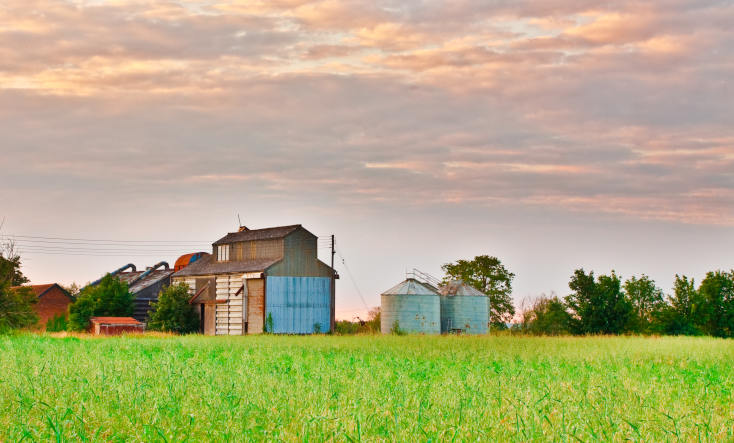
Development land is in high demand, especially if it comes with planning permission. While commercial opportunities can be in relatively short supply or unattractively priced, perhaps agricultural land could fill some of the gap? Let’s take a closer look at how to get planning permission to develop agricultural land.
What are the issues around agricultural land?
The definition is that agricultural land has a designated purpose for crop production, rearing livestock or other agriculture related commercial activities. But with farming declining in the UK, farmland may become redundant and can be bought cheaply. With housing pressure high, well-positioned farmland may constitute a valuable investment of future building plots.
That said, there is still a need to be able to produce food and drink domestically. What’s more, farmland is essential to protect our country’s green spaces, its aesthetic beauty and our way of life.
That’s why the rules around granting planning permission to build on agricultural land are strict. There are two major reasons that planning consent is required:
- Change of use of the land or buildings from agriculture to something else
- Erection of a new building on the land
If you are considering making a change to the use of the land, it is highly recommended that you speak to a professional adviser who can guide you towards a successful application. At Land & Brand New Homes, our team has 25+ years’ experience as land agents for residential development in the South East. Take a look at our Case Studies, many of which include residential developments built on former farmland.
Not only can we help you formulate a viable plan for the planning application process, we will ensure that you obtain the highest possible ROI with the planning process.
How to apply for planning consent to build on agricultural land
Applying for planning permission for agricultural land isn’t all that different to other sectors. It starts with getting to know and understand Planning Policy under your Local Plan. You need to assess the possibility of limited permitted development in the countryside for replacing agricultural buildings with residential property. In addition, particular attention needs to be addressed to agricultural land adjoining the existing settlement.
Further considerations include:
- The exact positioning of the proposed building(s) including vehicular access
- The size of individual buildings and the development as a whole, and how this will fit with the location
- Impact on the neighbourhood
Once your application has been submitted, there will be a consultation period before a final decision can be made. Opportunity for ideas or objections about your plans may be given to neighbours and local residents, local councils, highway engineers, environmental health officers and any other specialists where needed (conservation officers, tree officers etc). All views are taken into account in the planning decision, with the integrity of the agricultural land being the primary concern. The timescale for decision making is around 8 weeks.
Getting planning permission for agricultural land is anything but easy, and it may be that you receive a refusal letter. If your proposal is refused outright, or recommendations are made to improve your application, meaning a greater chance of success on reapplication. With the help of a professional with experience in agricultural development such as ourselves will give you a greater opportunity for a successful application.
Are there ways around getting planning consent?
If you wish to build on your agricultural land without getting planning permission first, it can be done. However, it’s a high-risk strategy that we would not endorse. If you build on the land and have lived there for 4 years (or a caravan for 10 years) without being discovered, you can apply for a Certificate of Lawfulness to obtain the right to stay there.
That said, if someone complains before the end of the necessary period, even if there’s only one day left to go, your right to live on your land would expire straight away, and you may have legal costs to pay. Far better to stick to the tried and tested planning permission process and follow the rules.
For more information or to discuss your plans to either sell or purchase agricultural land, please feel free to contact us.

